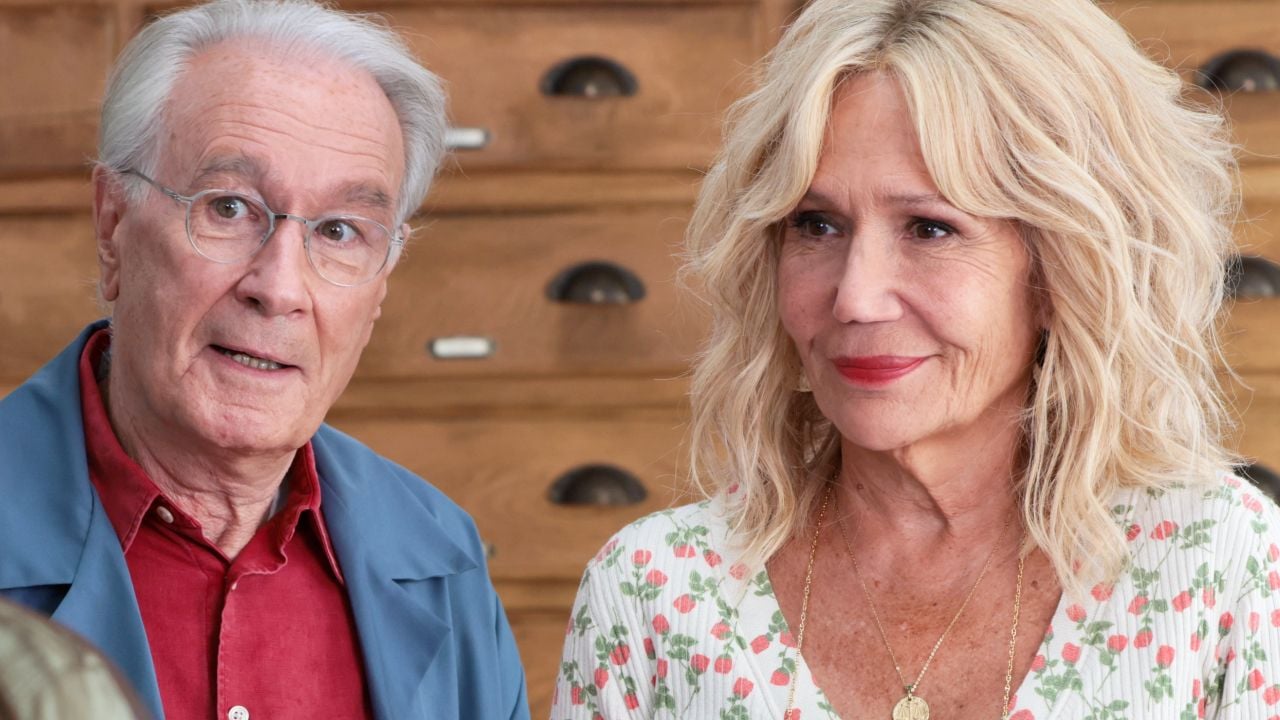Advalda Silva Santos tells how she started practicing belly dance in the second chapter of the Estadão series ‘Life after cancer’

After cancer to the intestine, in 2019, Advalda Silva Santos lost some of the sensitivity in her hands. It was one of the consequences of the chemotherapy treatment. Therefore, the 56-year-old hairdresser did not feel safe to return pole dance, a combination of dance and gymnastics that is her life’s passion: she even has her own bar. Instead of crossing her arms, she opened them-literally-to Belly dance.
“Dance is healing,” says the smiling and spontaneous hairdresser who intertwines her hands in gratitude every three or four sentences. It’s easy to see this in the free dance class offered by UBS Vila Formosa II, on the east side, every Wednesday. About 30 women of varying ages, with or without comorbidities, practice belly dancing. It is a program of the municipality of São Paulo held in a room of the church of Vinho Novo.
The disease has taken away some of the sensitivity, but it hasn’t dared to touch the way it moves. As the music of Novos Baianos says: The girl is still dancing. “What a question! I hear so many things. I feel the energy of the music. When my body dances, my mind wobbles. Dancing makes me smile,” Wal says, that’s what she likes to be called.
It is movement from the inside out. With dance she began to better understand the new shapes of her body. The surgery left a 30 cm scar from the breast to the groin. It does not hurt. He uses the colostomy bag, but it is not yet time to address this problem.
Although the word “cure” should be avoided when it comes to cancer, given the possibility of the disease returning, it is not so out of place in Wal’s case. Bowel cancer, which covers part of the large intestine called the colon and rectum (end of the intestine) and anus, is treatable. In most cases, the second most common type of cancer in the country is curable if detected early. This is what explains Maria Ignez Braghiroli, clinical oncologist at the Cancer Institute of the State of Sao Paulo (Icesp).
“It is one of the very few cancers where a cure can be thought of. Most of the time, when the cancer cell leaves the intestine, it stops in the liver due to intestinal circulation. With this it is possible to undergo surgery and remove them. Even with the disease metastasizing, there is still a possibility of a cure, depending on the situation, “says one of the directors of the Brazilian Society of Clinical Oncology (SBOC), of the Brazilian Group of Gastro Intestinal Tumors.
When Wal started feeling nauseous and vomiting, the doctor suspected a virus. Detailed tests have confirmed a stage 3 tumor, when it already advances to the lymph nodes, a kind of filter for harmful substances. The music stopped. “It was a silence inside me.” It was a week between diagnosis and emergency surgery.
The entire treatment, including six months of chemotherapy, was performed by Unified Health System (SUS). The hairdresser’s hair has weakened, but has not fallen out completely. He had a new chance, as the doctors called it. She is fine today, as shown in the sweeping gesture of her with the lilac veil that passed through her hair at the end of the prom: it was just difficult to hold the pose longer at the time of the photo.
The next step is the removal of the colostomy pouch, the connection between the large intestine and the abdominal wall that allows the stool to exit into an external pouch in the belly. Vanessa Prado, doctor of the Digestive System Specialties Center at Hospital Nove de Julho, says she is indicated for the most severe cases. “Each hospital has training for the patient and the carer regarding this care. But the patient ends up living normally well.”
While it’s a thorny subject, as most patients are ashamed to use it, Wal speaks “well” about the subject, as she calls it. The bag generates insecurity for the patient to return to pole dancing. She showers twice a day and wears a sheet, always matching her clothes, so people don’t notice.
And the bar? It is stored, packed and ready to finance a new project. Wal intends to sell it and travel to Portugal. Alana, her dance friend for seven years, went there six months ago and lives in Carvoeira, near Ericeira. Alana jokes that Wal’s bed is ready. The two dream of opening a dance studio in Portugal.
Bowel cancer is treatable. See questions and answers
How to prevent bowel cancer?
An adequate body weight, regular physical activity and a healthy diet are essential. Healthy food includes fresh and minimally processed foods, such as fruits, vegetables, legumes, whole grains, legumes, grains and seeds. You should avoid excess processed meats (sausage, mortadella, sausage, ham, bacon …) and limit your consumption of red meat to a maximum of 500 grams of cooked meat per week. Not smoking and not being exposed to smoke are important.
What factors increase the risk?
In addition to excess body weight and an unhealthy diet, a family history of bowel, ovarian, uterus, or breast cancer, smoking, and excessive alcohol consumption increase the risk. Inflammatory bowel diseases such as chronic ulcerative colitis and Crohn’s disease may also contribute.
Is bowel cancer treatable?
Bowel cancer is a treatable and often curable disease if identified early. As the disease spreads, with metastases to the liver, lungs, or other organs, the chances of recovery are reduced.
How is the treatment?
Treatment depends primarily on the size, location and extent of the tumor. Surgery is the initial treatment. It removes the affected part of the intestine and the lymph nodes (structures that are part of the body’s defense system) inside the abdomen. Other steps include radiotherapy (radiation), with or without chemotherapy (drugs), to reduce the chance of the cancer returning.
What is colonoscopy?
It is the examination of the colon (large intestine) and the terminal ileum (end of the small intestine). Maria Ignez Braghiroli, clinical oncologist at the Sao Paulo State Cancer Institute (Icesp), explains that colonoscopy allows you to find precursor lesions (polyps) that, over the years, can turn into cancer. According to the Brazilian Society of Digestive Endoscopy (SOBED), the identification of polyps is essential for the prevention of colorectal cancer. Learn more about colonoscopy here.
Where to look for help with bowel cancer?
ICESP – Sao Paulo State Cancer Institute – https://www.icesp.org.br
Brazilian Society of Digestive Endoscopy (SOBED) – https://www.sobed.org.br
Brazilian Society of Coloproctology (SBCP) – https://sbcp.org.br
All together against cancer – https://tjcc.com.br
Where to find information on well-being and quality of life
Institute of Chemotherapy and Beauty – https://www.quimiotherapyebeleza.com.br/
Oncoguia Institute – http://www.oncoguia.org.br/
Beat Cancer Institute – https://vencerocancer.org.br/
Source: Terra
Benjamin Smith is a fashion journalist and author at Gossipify, known for his coverage of the latest fashion trends and industry insights. He writes about clothing, shoes, accessories, and runway shows, providing in-depth analysis and unique perspectives. He’s respected for his ability to spot emerging designers and trends, and for providing practical fashion advice to readers.







